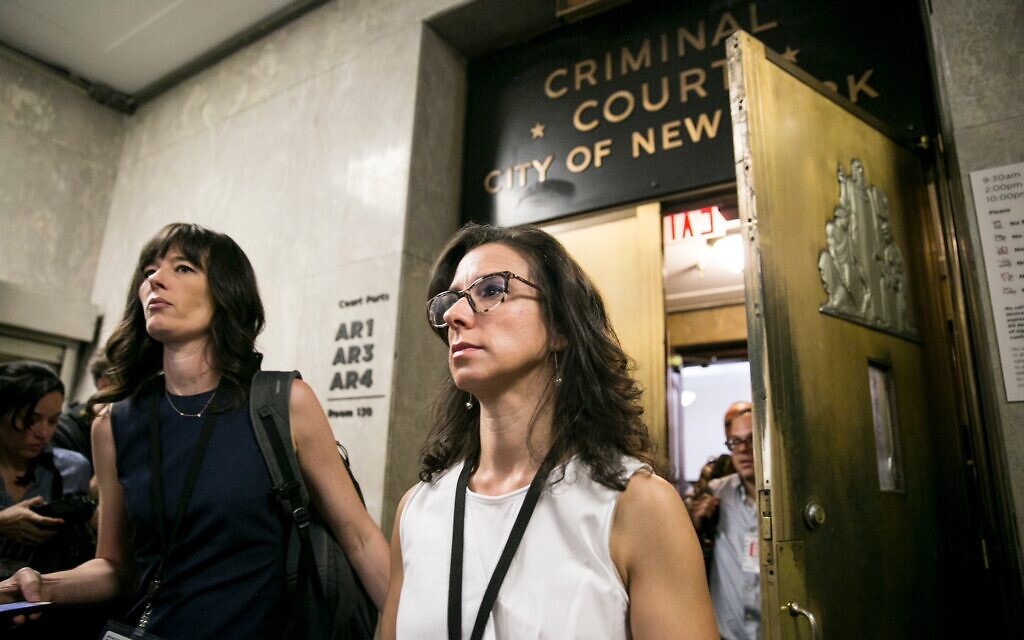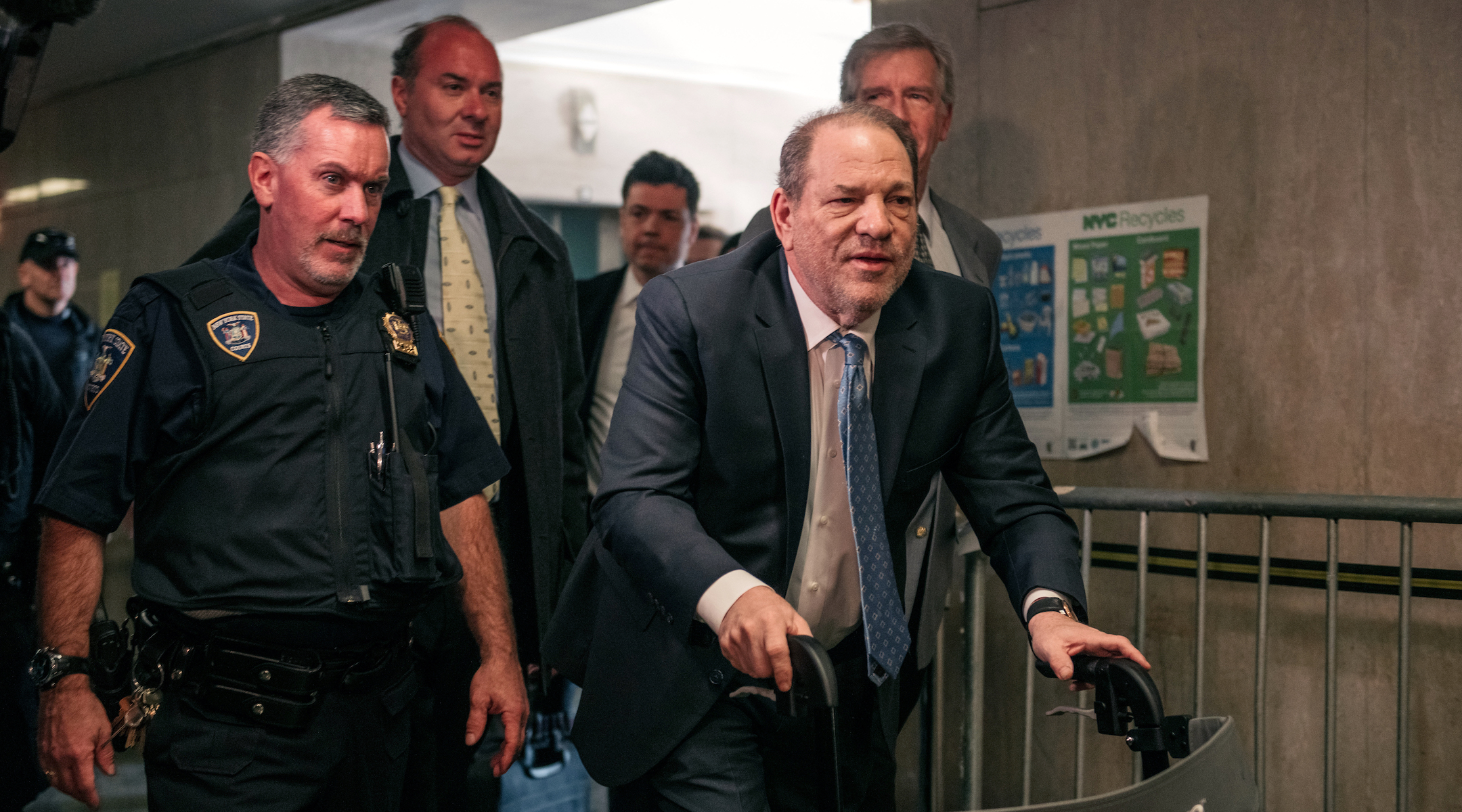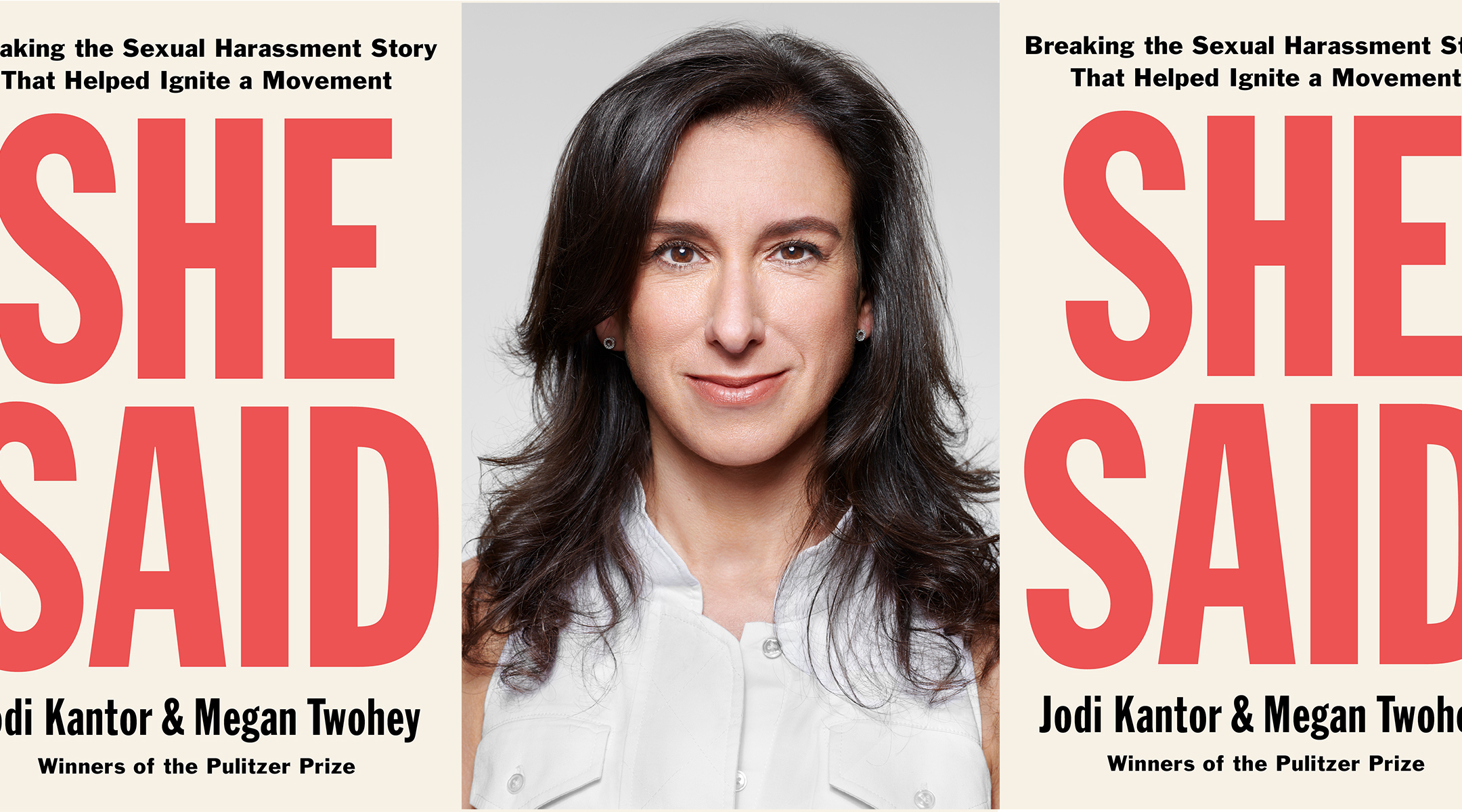This is what she said
It is three years since NYTimes journalists Jodi Kantor and Megan Twohey broke the story that would expose Harvey Weinstein as a sexual predator and ignite the #MeToo movement.

IN the early afternoon of October 5, 2017, New York Times journalists Jodi Kantor and Megan Twohey and four of their editors huddled around one desk at their midtown Manhattan office.
The enduring buzz of limitless hushed phone calls, late night meetings and long e-mail chains of the past six months ground to a silent halt. Together they took the final opportunity to read the story that Jodi and Megan had laboured over, the result of meticulous investigation and immeasurable trust earned from sources.
There, distilled into just 3300 words before them, were the painful stories of women – Hollywood actresses and former Weinstein Company employees – who claimed sexual abuse perpetrated by mega producer Harvey Weinstein, and the legal cover-ups and non-disclosure agreements that followed.
At 2.05pm, with no further edits made, the button was pushed and the article finally met the gaze of the world.
“Harvey Weinstein paid off sexual harassment accusers for decades”.
THREE years later, from her Brooklyn home, Jodi muses on the moment that changed everything. She speaks with a tone that is warm, with words that are articulate, yet deeply considered, as she tends to her youngest daughter intermittently.
“It’s like the moment in Yom Kippur where it’s said the book is going to be closed, and everything is inscribed,” she says. “It just feels so permanent because you’re toying with the story on your laptop and you’re perfecting it, and perfecting it, and then at the moment of publication, it does become like Torah … These women’s fates, Weinstein’s fate, our fate, are all caught up in what is in black and white on the page.”

But the words on the page deeply resonated. They rocked Hollywood and put the entertainment industry – and indeed, all industries – on notice. The story invoked attention and inspired courage in many more of Weinstein’s victims, who cast off the shroud of silence to speak truths long suppressed. Additional investigative reports ensued in the New York Times and The New Yorker. Ultimately, over 80 women came forward, including famous names Gwyneth Paltrow, Angelina Jolie, Rose McGowan and Uma Thurman.
But it was Ashley Judd, who was the first much-needed Hollywood star to go on the record. Just two days before publication, after much contemplation, the Emmy-nominated actor called Jodi and agreed to be named in the report. While clutching the phone, Jodi collapsed to the ground in relief and excitement.
“It was probably the most satisfying moment I’ve ever experienced as a journalist,” she reflects.
“…To have this powerful woman say, ‘I’m going to take an enormous risk to tell the truth. I believe in your story. I believe in these other women you’ve talked to, and I’m going to put my career on the line to do the right thing’, it was an extraordinary moment. Ashley just showed unbelievable strength.”
Judd’s commitment to publicly speaking out overcame one major obstacle that Jodi and Megan faced. The initial challenge was earning the trust of the women in order for them to open up about their trauma.
Jodi recalls the line of encouragement that Megan offered her, formulated after years of reporting on sex crimes: “I can’t change what has happened to you in the past, but if we work together, we may be able to put your pain to some productive use.”
“And that really, really resonated with me,” tells Jodi, adding that their ever-mounting body of evidence against Weinstein also reassured victims that it would not just be their words against his.
Jodi says it became apparent from early on in their investigations that there was a story. While Weinstein’s victims were not yet prepared go on the record, Jodi and Megan identified a pattern in their accounts: He would usually invite them to a hotel under the guise of discussing business, and insist on the meeting being in his room where he would be waiting in a robe and demand a naked massage or sexually abuse them.

“There was this dawning recognition that something disturbing, something potentially grave and widespread had happened.”
Jodi describes the “enormous pressure” she and Megan felt, “because you know about the wrongdoing and you feel that if you fail [in writing the story], it will go unaddressed”.
“It almost felt that life became binary, like we’re going to get this story or we’re not. There are really only two outcomes here, and I don’t know how we’re going to do it, but we cannot fail.”
By September, Weinstein’s knowledge of the investigation had him perturbed enough to personally visit the office of The New York Times along with his team. After months of studying him from afar, there in the foyer, Jodi found herself eye-to-eye with the movie mogul in their first personal encounter.
She noted a tactic that many had forewarned; his constant change to the tone of the conversation in order to assume dominance.
“It was very destabilising. He would joke with you, and then he would threaten you, he would compliment you, and then he would lecture you.”
Despite her inner dialogue reminding her to keep a “poker face”, Jodi let a nervous laugh escape, which she admits she instantly regretted.
“But [he] was on my turf. And our reporting was pretty strong at that point. I felt the confidence of the organisation behind me, and I was more scared for our sources than I was for us.”
WHILE a career in journalism was not an obvious choice for a young Jodi, in retrospect, she says it should have been.
A “journalism junkie” from a young age, she devoured every newspaper and magazine that came into her home – but, “I think I would have thought it was presumptuous or narcissistic to think that other people would want to read what I had to say,” she contemplates.
Born in New York and raised in a warm, close-knit Jewish community, Jodi came into the world 30 years after her grandparents were liberated from the smouldering remains of Europe. Surviving the concentration camps, they had immigrated to the US where they rebuilt, and befriended other survivors with whom Jodi spent much time.

“I grew up around the questions of investigative journalism because there was always a feeling of trauma in the air – and a sense that these older people all had stories.
“Some spoke about their stories, and some didn’t … Like, my grandmother was a talker and my grandfather was not. But, as they were mourning as a group, there were always these questions, like, how could this have happened? Who was responsible? How could good people have participated in this? What was the system that enabled this?
“And those are kind of the classic questions of investigative journalism.”
Accompanying a photo posted on her Instagram account last year, Jodi credits her 96-year-old grandmother, Hana Kantor, as “maybe the ultimate reason I write about power, unfairness and wrongdoing”.
“We were raised with an enormous sense of responsibility to make good on the promise of America, to make something of our lives, to live lives of meaning,” Jodi explains.
Jodi and Hana continue to share a closeness and a special relationship. Despite being separated by the pandemic, Jodi made sure her grandmother received a Bluetooth speaker, remotely helping her set it up so she could listen to her adored Yiddish songs of yesteryear.
“She is the miracle of all our lives and I’m lucky enough to still have her.”
Israel has also played an important prelude to Jodi’s path to journalism. In 1996 she lived in Jerusalem for a year and undertook a fellowship where she studied Hebrew and volunteered for organisations that worked toward Israeli–Palestinian reconciliation.
“I think in a way it was important preparation for becoming a journalist because it involved a recognition of how complicated the truth is and how much nuance and precision is required.
“That was a situation in which the various parties couldn’t agree on the basic nature of truth – and that’s the situation that society finds itself in now; where the very idea of a common notion of truth is in doubt.”

SINCE the publication of Jodi and Megan’s series of reports on Weinstein and other prominent abusers, The New York Times won the 2018 Pulitzer Prize in Public Service for reporting led by Jodi and Megan (shared with Ronan Farrow of The New Yorker). Just over a year ago, the duo released She Said: Breaking the Sexual Harassment Story That Helped Ignite a Movement, taking readers behind the scenes of their investigation. It became a critically-acclaimed bestseller.
But broader than the accolades, Jodi and Megan’s reporting invoked a global reckoning on sexual abuse of women, beginning to shift the cultural landscape away from a normalised acceptance of men who abuse their power with long-accepted and dismissed predatory behaviour.
It empowered sexual assault survivors and propelled the global #MeToo and #TimesUp movements.
And on March 11, 2020, Weinstein was sentenced to 23 years in prison for sexual assault and rape.
But how much has truly changed? It was a question that Jodi and Megan posed in She Said, and put to Jodi again amidst the discombobulated whirlwind that is 2020.
“Everything has changed, and nothing has changed,” she declares.
“On the one hand, there is much more consensus that this behaviour is wrong. When we started the story, we had to endure all of these lectures from smug Hollywood executives who told us that we were naive, that the casting couch was intrinsic to Hollywood, that it would never go away, that everyone just accepted Weinstein’s behaviour.
“That’s obviously not true,” she says, adding that in the US, hundreds of men have since lost their jobs due to allegations of this nature.
She also speaks of the increased awareness around the issue, with conversations having emerged from the shadows and thrust into the public space across many industries.
“Then again,” Jodi deliberates, “We can see that laws have not really changed in the US. They’ve been modified a little bit on a state level, but very marginally. And until you really see laws change, you have to ask how much has ultimately changed?”
Noting the place of race and class which plays out in an increasingly polarised America, Jodi emphasises the necessity for large scale legal change in order to protect the country’s most vulnerable and low-income workers.
“If you look at a fast food worker who has been groped every day by her boss, and doesn’t feel she can do anything about it, I’m not sure how much has changed for that woman in the past three years.
 “We see that often when women of colour make these complaints, they are taken less seriously than when white women do. It’s not an accident that [in the case of] the Weinstein story, the stories of these high-profile actresses, many of them white, had such a galvanising effect on people across the globe.
“We see that often when women of colour make these complaints, they are taken less seriously than when white women do. It’s not an accident that [in the case of] the Weinstein story, the stories of these high-profile actresses, many of them white, had such a galvanising effect on people across the globe.
“These are women who get listened to. They have the ability to command the world’s attention. It took Gwyneth Paltrow, Angelina Jolie, Ashley Judd on the record, but they were very aware the reason they went on the record was that they felt, I can use my power for good here. I can speak in a way that may cause other women to be listened to.”
WHEN Jodi and Megan dove into the Weinstein investigation, Megan’s baby girl was just four months old; while Jodi’s daughters were 18 months, and 11 years old.
In the acknowledgements of She Said, Jodi and Megan pen a powerful message to them – perhaps the most poignant testimony to their reporting: “To our daughters and to yours: May you know respect and dignity always, in the workplace and beyond.”
Speaking further to the point of legacy, Jodi is filled with the hope “that facts matter, that stories matter – and can arouse great compassion – that people care, and that we can talk about hard things”.
She continues, “People who have experienced terrible things shouldn’t feel ashamed. When they are willing to honestly discuss what they faced, they become very powerful in their ability to help others.
“Private, shameful experiences that we might have struggled with for years may, in fact, be part of something much bigger.”
She Said: Breaking the Sexual Harassment Story That Helped Ignite a Movement is published by Bloomsbury Circus and is available online and at all good book shops.
Get The AJN Newsletter by email and never miss our top stories Free Sign Up

comments